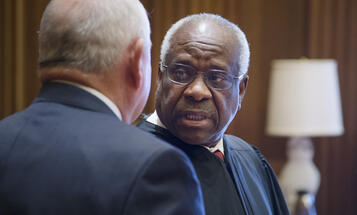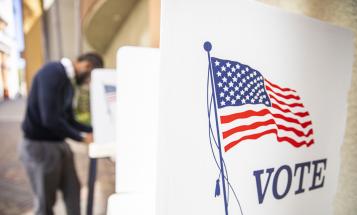
“We Have to Rethink the Whole System”
No matter who wins each of the hundreds of elections today, one thing's for sure: a relative handful of large donors and spenders are setting the agenda and terms of debate, while the rest of us are on the sidelines.
Matea Gold has a great piece in today's Washington Post highlighting the latest bug (or is it a feature?) in our big money campaign system: outside groups that can raise big money through unlimited contributions because they are supposed to be "independent" of candidates and parties, but which find plenty of ways to cooperate with those candidates, while avoiding "coordinating" in the narrow legal sense.
In 2012 all of the presidential candidates had their own Super PACs. Now just about everyone running for House or Senate in a close race needs one too.
Gold quotes Paul S. Ryan of the Campaign Legal Center pointing out that the increased cooperation "is rendering the candidate contribution limits meaningless." After all, why worry about giving just $2,600 to a candidate if you can give $1 million to an allied Super PAC that will spend your money exactly as the candidate herself would have?
But, the most revealing quote in the piece comes from a campaign finance lawyer at a private firm—someone paid to advise clients to navigate the current system. Gold quotes Venable attorney Larry Norton as saying "I do think there's a growing feeling—and I certainly have it—that we have to rethink the whole system. It's bordering on just an incomprehensible system, where the rules don't really mean anything."
Mr. Norton is totally correct. In drawing a false distinction between campaign contributions and spending, and by insisting that fighting corruption is the only valid reason for limiting campaign money, the Supreme Court has given us a fundamentally flawed system for funding elections.
It's time to rethink our campaign finance rules from the ground up. It's time for a movement to bring the core American values of political equality and accountability back to life in our Constitution.
Only by rejecting the Supreme Court's misguided approach to money in politics and starting anew can we finally build a democracy in which the strength of a citizen's voice does not depend upon the size of her wallet.



